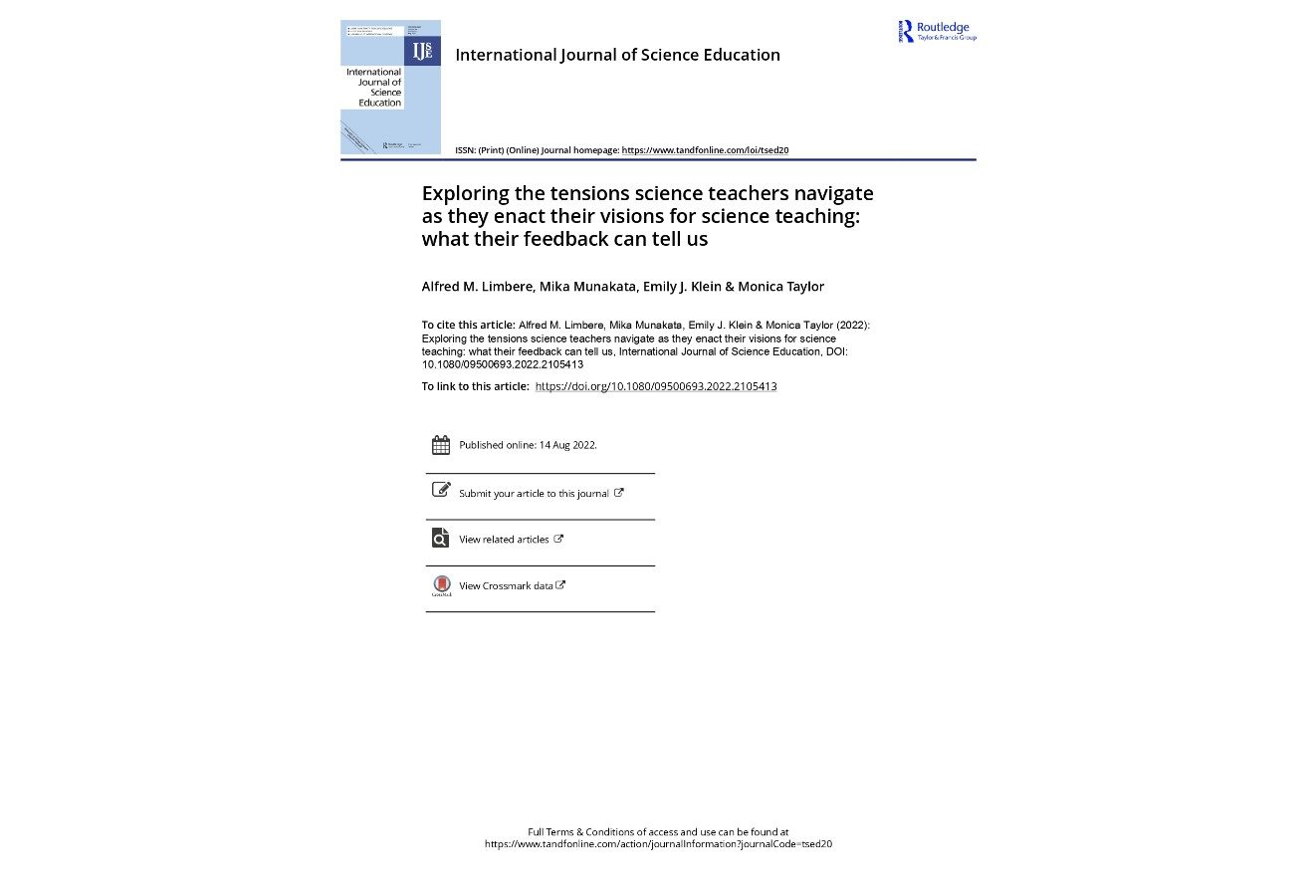
The context of the work of teachers continues to change (Bales, 2006; Hatch, White, &Faigenbaum, 2005) as they face unprecedented challenges and have to navigate policydirectives that link their professional growth to student learning in their classrooms(Darling-Hammond, 2000; Datnow, Hubbard, & Mehan, 2002; Fishman, Marx, Best, &Tal, 2003; Spillane, 1999). In the U.S.A, for example, the No Child Left Behind Act equatedteacher effectiveness with high-stakes testing of students (McLaughlin & Talbert, 2006).More recently, in 2015, the Every Student Succeeds Act (ESSA) proposed that professionaldevelopment for teachers be evidence based and designed in response to their students’ testresults (Education Week, 2016). These policies as well as increased public scrutiny, deep fiscal problems and ineffective highly bureaucratic administrations create an environment where teachers question their worth in schools, do not feel job satisfaction and are generallyunder tremendous stress (Flook, Goldberg, Pinger, Bonus, & Davidson, 2013: Johnson.Kraft, & Papay, 2012; Margolis, 2008). Additionally, teachers remain in static schoolcultures (Kennedy, 2005; Opfer & Pedder, 2011; Stigler & Hiebert, 1999) where high-stakestesting is ever-present and professional development is facilitated by outside consultantswith pre-packaged programs (Cochran-Smith & Lytle, 2009; Lieberman & Miller, 2011;Talbert, 2010). Their school environments make teacher leadership an impossibility as teachers feel overburdened with minute responsibilities. However, contrary to the rationale of policymakers to increase high-stakes testing as a means of increasing student achieve-ment, a report commissioned and published by the Wallace Foundation (Leithwood,Seashore, Anderson, & Walshtrom, 2004) found a direct relationship between strong teacher leadership and increased student achievement, supporting the idea that teacher leadership may be a promising way to cultivate teachers to become leaders aimed at improving instructional practice in schools, with the potential to impact student learning (Crowther, Kaagen, Ferguson, & Hann, 2002).This article presents findings from a two-year, qualitative study of K-12 science teachers involved in the Wipro Science Education Fellowship program, funded by Wipro, a global information technology and consulting corporation. Aiming to foster sustainable change in districts and support emergent teacher leadership, the program enabled Fellows to colla- boratively reflect on practice and develop as teacher leaders who lead informally from the classroom. To become teacher leaders, these Fellows assumed a learning orientation toward their daily work (York-Barr & Duke, 2004), and problematized their teaching as active learners (Cochran-Smith & Lytle, 2009; Grossman et al., 2009; Opfer & Pedder, 2011).Constructing knowledge, having ownership of their learning and contributing to a larger professional community all potentially contributed to their teacher leadership.The Wipro SEF program spanned two years and was led in collaboration with district coordinators from five participating school districts. During year one, Fellows worked in vertical teams (content-based) and then in horizontal teams (grade level-based) to study their practice through video. To setup their work, each team of five Fellows chose a teaching practice to study, selected and discussed a research article about that practice and provided feedback on every teacher’s videoed lesson. The Fellows followed protocols for pre- and post-video debriefs and submitted reflections for each observed teacher. The entire cohort met monthly with faculty in professional development workshops on such topics as backward design, classroom discourse, standards-based teaching, teacher leadership and action research.In year two, Fellows designed and implemented a teacher leadership plan (a growth plan system) in their district with support from university faculty and district mentors.They delved deeply into their inquiries and expanded their spheres of influence to lead professional development in their grades, schools and districts through conducting action research, facilitating teacher study groups, mentoring and coaching teachers,writing articles, presenting at conferences, running workshops or developing curricula.In this study, we sought to understand how Fellows developed as teacher leaders through their participation in the program and their actions in their schools and districts.
